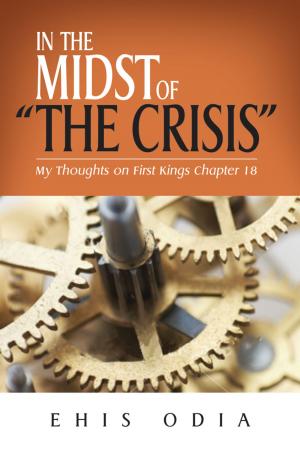The Economic Pendulum
A Disastrous Global Swing
Nonfiction, History, Ancient History, Rome, Social & Cultural Studies, Social Science, Religion & Spirituality| Author: | Elijah Morgan | ISBN: | 9781936554669 |
| Publisher: | eGenCo | Publication: | January 28, 2014 |
| Imprint: | Language: | English |
| Author: | Elijah Morgan |
| ISBN: | 9781936554669 |
| Publisher: | eGenCo |
| Publication: | January 28, 2014 |
| Imprint: | |
| Language: | English |
Today the global economy is in a crisis of unprecedented magnitude. At the same
time, the modern church is in a crisis of its own. Both “economies” have abandoned
their solid “gold standard” for things of lesser value: for the global economy, “��at”
paper money instead of gold, and for the church, empty ritual and formalism instead
of the powerful presence of Christ.
This timely and insightful book addresses the crises in these parallel yet interconnected
economies. Chapters 1 and 2 trace their histories, explaining how they began,
where they got off track, and what must be done to restore them. Chapters 3 and 4 lay
down basic principles of economics and the history of money. Chapter 5 deals with
the global culture of debt that drives the economies of nations today, while chapter 6
explains the stubborn persistence of poverty in the world and why it is inevitable
under current global economic systems. Chapter 7 addresses technocracy, which advocates
global rule by the elite. False concepts of the church and the kingdom of God
are the subject of chapter 8, while chapter 9 lifts up the ideal of ancient Israel and its
no-debt culture as a model for both economies in crisis. Finally, chapter 10 presents
the kingdom of heaven as the perfect economic system and examines what the
church must do to regain her original focus on the glory of God
Today the global economy is in a crisis of unprecedented magnitude. At the same
time, the modern church is in a crisis of its own. Both “economies” have abandoned
their solid “gold standard” for things of lesser value: for the global economy, “��at”
paper money instead of gold, and for the church, empty ritual and formalism instead
of the powerful presence of Christ.
This timely and insightful book addresses the crises in these parallel yet interconnected
economies. Chapters 1 and 2 trace their histories, explaining how they began,
where they got off track, and what must be done to restore them. Chapters 3 and 4 lay
down basic principles of economics and the history of money. Chapter 5 deals with
the global culture of debt that drives the economies of nations today, while chapter 6
explains the stubborn persistence of poverty in the world and why it is inevitable
under current global economic systems. Chapter 7 addresses technocracy, which advocates
global rule by the elite. False concepts of the church and the kingdom of God
are the subject of chapter 8, while chapter 9 lifts up the ideal of ancient Israel and its
no-debt culture as a model for both economies in crisis. Finally, chapter 10 presents
the kingdom of heaven as the perfect economic system and examines what the
church must do to regain her original focus on the glory of God















